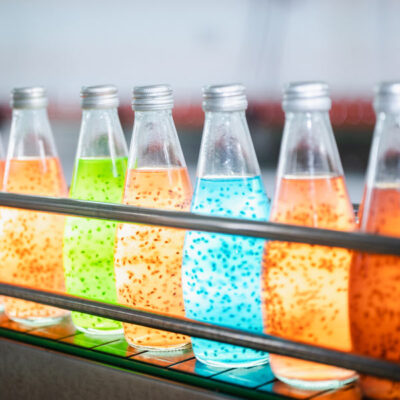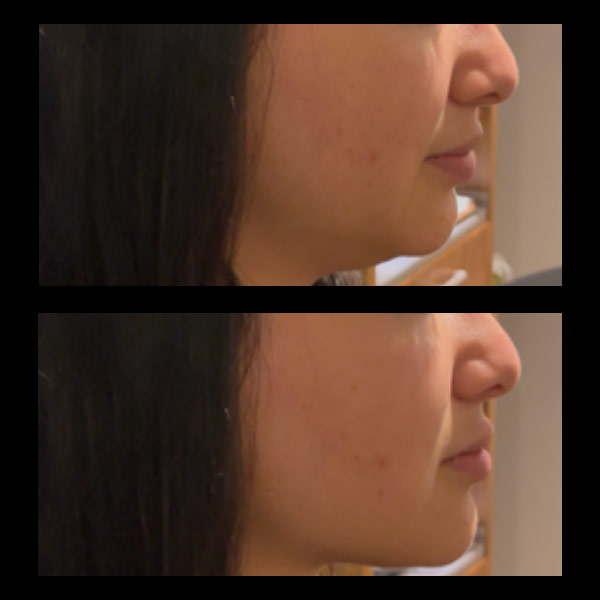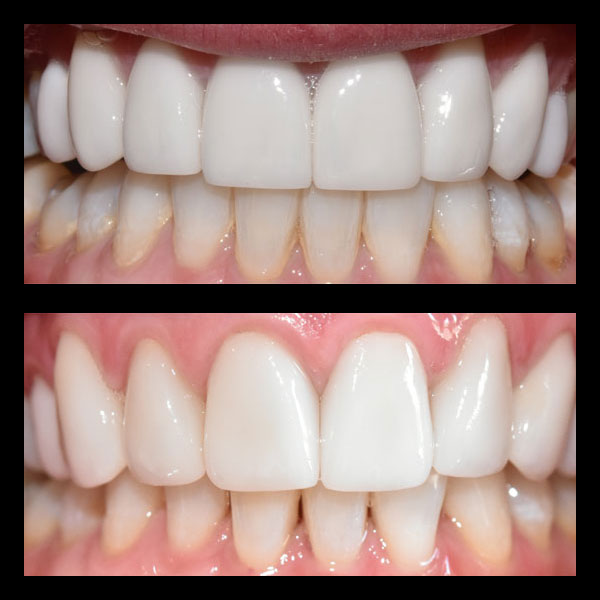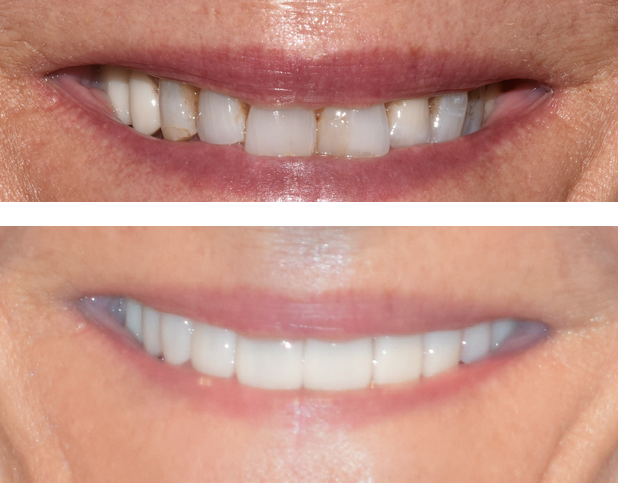 Everyone strives for a beautiful and healthy smile. But achieving that involves more than just diligent brushing, flossing, and regular dental visits. What you eat significantly shapes the health and appearance of your teeth, making your diet an essential player in the quest for optimal oral health.
Everyone strives for a beautiful and healthy smile. But achieving that involves more than just diligent brushing, flossing, and regular dental visits. What you eat significantly shapes the health and appearance of your teeth, making your diet an essential player in the quest for optimal oral health.
Many foods and beverages can damage your teeth and gums, leading to decay, gum disease, and tooth loss. These substances erode your tooth enamel, the protective layer against tooth decay. Once damaged, enamel can’t repair itself, leading to sensitive teeth and other oral health issues.
We’ll discuss seven of the top culprits that can ruin your oral health. But rest assured, there are plenty of tooth-friendly alternatives available.
#1: Sugary Foods
The Impact of Sugary Foods on Oral Health
Sugary foods and sweets, delightful though they are, have a harmful effect on your teeth. When you indulge in a sweet treat, especially sticky and gummy candies, the sugar particles stick between teeth and in crevices. This starts a destructive process if not cleaned promptly. Bacteria in your mouth thrive on sugar, leading to plaque build-up. Over time, this plaque hardens into tartar, which can lead to gum disease, tooth decay and cavities if left unchecked. Hard candies are particularly harmful as they stay in your mouth longer, bathing your teeth in sugar and increasing these risks.
Counteracting Sugary Foods’ Effects
The most effective way to counter the harmful effects of sugary foods is to limit your intake. However, completely eliminating sweets from your diet may be difficult. Moderation is the key. Enjoy these foods as occasional treats, not everyday staples. Combine this with good oral hygiene like brushing your teeth twice a day, regular flossing, and routine dental check-ups to maintain your oral health. A small change now can have a big impact on your future health!
#2: Carbonated Soft Drinks
Fizzy drinks might quench your thirst, but they can cause more harm than good. They often contain a high amount of sugar and acids such as phosphoric and citric acid, which give them their tangy taste and effervescence. These acids attack the tooth enamel, the protective layer of your teeth. Enamel can’t regrow or repair, so once eroded, your teeth become sensitive and susceptible to decay. Furthermore, dark-colored sodas can discolor or stain your teeth.
Healthier Drink Alternatives
Protecting your teeth begins with healthier drink choices:
- Water: This is the best drink for your teeth and health. A glass of water keeps you hydrated, is calorie-free, promotes saliva production and can wash away food particles stuck between your teeth.
- Unsweetened tea: Teas, particularly green tea, contain antioxidants that combat bacteria in your mouth and promote healthy gums. Just remember to go easy on the sweeteners.
- Coconut water: A natural source of electrolytes, coconut water is a great alternative to sugary sports drinks. It’s hydrating and has less acid and sugar than sodas and fruit juices.
If you choose to have a carbonated drink, you can take precautions to limit the damage. Sparkling water offers an alternative that gives you the essence of a fizzy drink without the extra sugar. But be mindful that carbonation is still slightly acidic, so moderation is recommended.
You can also use a straw to reduce the amount of contact the beverage has with your teeth. Rinsing your mouth with water after consuming a soda can wash away some of the acids and sugars. However, these actions only minimize the harm; they don’t eliminate the risks.
#3: Acidic Foods
Citrus fruits and tomatoes, while nutrient-rich, contain high levels of acid that can harm your teeth. This acid can erode your tooth enamel over time, leading to increased sensitivity and a higher risk of tooth decay.
The good news is that you don’t need to eliminate these fruits from your diet. Instead, incorporate them into balanced meals to buffer their acidity. For instance, you could pair a citrus fruit with cheese or add a tomato-based pasta sauce to whole grain bread. This approach helps to neutralize the acidity in your meal.
It’s best to wait at least 30 minutes before brushing your teeth to avoid causing further damage to your enamel. Rinsing your mouth with water or chewing sugar-free gum can also help to neutralize the acid and rinse it away.
Acidic foods, despite their potential impact on your teeth, are essential for a balanced diet. Enjoy them in moderation, pair them with less acidic foods, and follow the right after-meal practices to maintain your oral health. Your teeth will be grateful!
#4: Alcoholic Beverages
Consuming alcohol can significantly affect your oral health. Regular alcohol intake can result in dental issues such as gum disease, tooth decay, tooth loss, and in severe cases, oral cancer. This is because alcohol primarily dries out your mouth, reducing saliva production. Saliva is vital for oral hygiene as it washes away food particles and neutralizes bacteria-produced acids. Without enough saliva, these acids attack the teeth and cause decay.
Reduce the Impact of Alcohol on your Dental Health
To counteract the effects of alcohol, try to make it a habit to drink water alongside these beverages. This will help maintain saliva levels and reduce the risk of dry mouth. Also, opt for drinks that are lower in sugar and acidity. Mixed drinks tend to have higher contents of sugary syrups which increase the risk of tooth decay. Consuming food as you drink, such as cheese and nuts, will help neutralize acids and stimulate saliva production.
With alcohol, moderation is crucial. Maintain your oral hygiene routine after alcohol consumption; brushing and flossing can help remove any residual sugars and acids. Remember, your choices today can help maintain your radiant smile for a lifetime.
#5: Hard Foods
While the satisfying crunch of certain foods can be tempting, it’s crucial to understand the potential damage they can inflict on your teeth. Consuming hard foods like popcorn kernels, hard candies, and ice can lead to cracks, chips, or even dislodging a tooth.
Chewing on hard foods exerts significant pressure on your teeth, potentially causing cracks or chips, particularly if the tooth is already weak. Even minor cracks can expose the sensitive inner layers of your teeth, causing discomfort and sensitivity.
Additionally, a damaged tooth can provide an entry point for bacteria, increasing the risk of cavities or even necessitating a root canal if the bacteria reach the tooth’s pulp. Consuming hard-to-chew foods regularly can put you at risk for these serious dental issues.
While it’s not necessary to eliminate these foods entirely, exercise caution when consuming them. If you encounter a hard object in your food, resist biting down and remove it from your mouth. If you do chip or crack a tooth, don’t panic. Most minor damages can be repaired using a filling or a crown. The important thing is to seek dental attention promptly to prevent further damage.
#6: Starchy Foods
Starchy foods, such as bread, pasta, chips, and crackers, play a more significant role in tooth decay than many realize. These foods are often considered less harmful than sugary sweets, but they can pose similar risks to dental health.
When starchy foods are broken down in the mouth, enzymes in saliva begin to convert them into sugar. This process starts right in the mouth, turning these seemingly harmless foods into a sugary feast for bacteria. Processed starchy foods like chips and white bread also become sticky when chewed, trapping sugar in between teeth, inviting harmful bacteria. This also lowers the pH of the mouth, which invites acids that cause tooth decay.
To mitigate the effects of starchy foods, rinse and drink water after eating which helps to wash away food particles. Wait about 30 minutes after eating before brushing or flossing , to avoid harming already softened enamel any further. Chewing sugar-free gum can also help to encourage saliva production and neutralize the acids from starchy food intake.
#7: Sports and Energy Drinks
Though often marketed as health beverages, many sports and energy drinks are loaded with sugar and acids. They can be as damaging to teeth as sodas, contributing to enamel erosion and decay. Regular consumption of these beverages, especially among athletes and individuals who drink them throughout the day, increases the time teeth are exposed to these harmful acids and sugars.
The simplest way to reduce the impact of sports and energy drinks on dental health is to limit their intake. Try to view them as occasional treats rather than daily beverages. Choose water or electrolyte-infused water for hydration during or after physical activity. If you do consume sports or energy drinks, consider using a straw to minimize contact with your teeth. This helps reduce the exposure of your teeth to the sugars and acids in the drink. Rinsing your mouth with water after drinking helps to neutralize the acids and wash away sugars. Eating a balanced diet can also provide the energy and electrolytes needed for exercise. Foods like bananas, sweet potatoes, and yogurt are great for energy and replenishing electrolytes.
By limiting your consumption of sports and energy drinks and practicing good oral hygiene, you can mitigate the risks and maintain optimal dental health.
Improve Your Dental Health Now
Taking care of your dazzling smile involves more than just brushing and flossing. Your diet plays an essential role too. Small changes can contribute to significant improvements in your oral health. It’s always a good time to start caring for your teeth better!
Incredible Smiles is dedicated to offering top-notch care for our guests. Everyone deserves a healthy, radiant smile. Should you be due for a check-up, require advice on oral health management, or express interest in our services such as porcelain veneers or dental implants – we are here for you.








